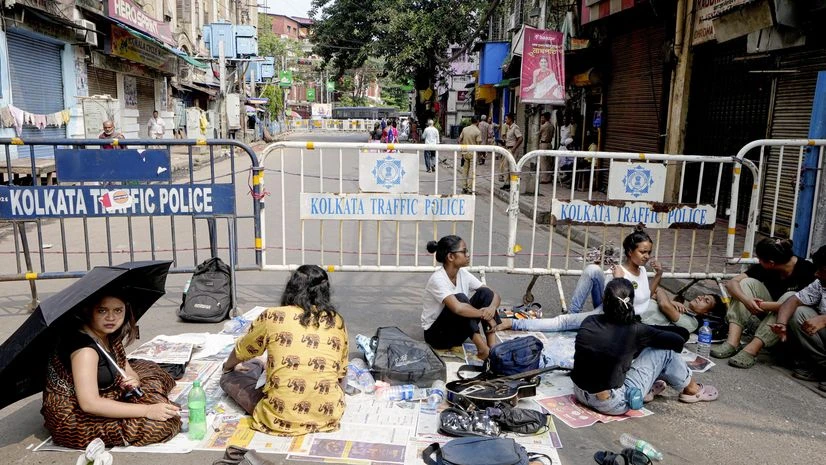Over nearly three months, junior doctors at RG Kar Hospital in Kolkata went on strike to protest the August 9 rape and murder of a fellow doctor, severely disrupting services. According to data from July to October, the number of patients visiting the hospital dropped by half, and major surgeries declined by 91 per cent, according to a report by The Indian Express.
The body of the junior doctor, who was allegedly assaulted by a civic volunteer with Kolkata Police, was found in a seminar hall on the hospital’s fourth floor. This sparked protests, with junior doctors demanding better safety measures and the removal of key police and health officials. Although the government conceded to some demands, tensions persisted, leading some protesters to begin a hunger strike.
On Monday, after discussions with chief minister Mamata Banerjee, the junior doctors decided to end their strike but said their movement for improved safety would continue.
The protest significantly impacted patient care at RG Kar, the centre of the unrest. Data obtained by The Indian Express shows that the hospital's out-patient department (OPD) saw a daily average of 5,106 patients in July, which dropped to 2,362 by October, representing a 53 per cent decrease. During the same period, in-patient department (IPD) figures also halved. The lowest OPD turnout occurred in August, with only 2,044 patients visiting that month.
Drop in number of patients
During the week leading up to the August 9 incident, a total of 23,000 patients visited the OPD. However, the number dropped to around 100 daily after the crime and fell to zero following a mob attack on the hospital on August 14-15. By August 22, with the appointment of a new principal, Manas Bandopadhyay, and the implementation of new safety measures, patient footfall slowly began to recover, reaching about 900 daily visits by the end of the month.
Bandopadhyay stated that by mid-October, daily patient visits had risen to 3,995. The deployment of Central Industrial Security Force (CISF) personnel and improved security measures helped regain some patient confidence.
More From This Section
However, a senior health department official acknowledged that the hospital still faced challenges in fully restoring trust. Despite the return of junior doctors to work in early October, the hospital’s patient numbers and surgical procedures have yet to recover to pre-August levels.
Before the protests, the hospital’s labs handled an average of 2,467 tests daily in July. This number fell to 928 in August and further declined in September and October. Similarly, major surgeries, which averaged 48 daily in July, dropped to just seven in October, the report said.
Although patient attendance remains below pre-August levels, the hospital’s emergency department and OPD continue to experience heavy demand. As one of the largest referral hospitals in the region, RG Kar serves patients from Kolkata and South Bengal.
Following the August 9 incident, security has been tightened at the hospital, with CISF overseeing key areas such as the trauma ward and emergency building. Though the hospital is gradually resuming normal operations, a senior official indicated that renovation and restoration work is ongoing, with 95 per cent of CCTVs already installed and further improvements underway.

)